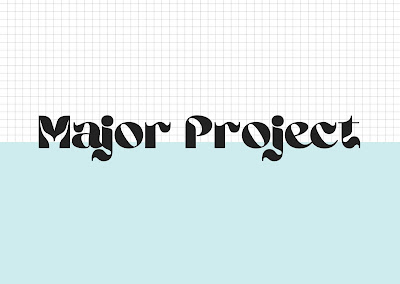Design Principles: Task #3 Repetition & Movement
11.09.2020 - 18.09.2020 (Week 5 - Week 6)
Seerat Tayyab Mukhtar Qureshi - 0345576 (BDCM)
Design Principles
Lecture #3: Repetition & Movement
This week we were looking at the design principles of repetition & movement.
1. Repetition:
Repetition could make a work of design look active. Repetition creates rhythm and pattern which create visual excitement. Variety is essential to keep rhythms exciting and active.
Fig 1.0: Repetition
SOURCE: Lecture slides
2. Movement
Movement is the way a design leads the eye in, around and through a composition— the path the eye follows. Movement comes shapes, forms, lines and curves that are used.
Fig 1.2: Movement
SOURCE: Lecture slides
3. Hierarchy
Hierarchy is the choreography of content in a composition to communicate information and convey meaning. This helps direct viewers to the most important information first and navigate through secondary content
Fig 1.3: Hierarchy
SOURCE: Lecture slides
4. Alignment
Instructions:
Module Information Booklet
Exercise: Repetition & movement
1. Repetition:
I started by sketching out some ideas for both repetition and movement.
Fig 1.6 Sketches
For repetition my ideas were 1 (top left) to create a repetitive eye design which resembles a wallpaper, 2 (top middle) create a wave design that has repetitive line work inside and 3 (top right) which is a design inspired by Wayne Thiebaud to create a repetitive composition of one object.
Fig 1.7 My inspiration for sketch 2, traditional Japanese Ukiyo-e art
SOURCE: https://20x200.com/blogs/news/new-soak-up-the-seaside-serenity-of-this-japanese-ukiyo-e-scene
Fig 1.8: My inspiration for sketch 3, Wayne Thiebaud
SOURCE: https://www.christies.com/features/Pinball-wizard-a-closer-look-at-the-masterful-art-of-Wayne-Thiebaud-10561-7.aspx
Miss Jinchi liked the wave design and I also thought it would be a suitable design to create using watercolour and pastels. I looked more into repetitive line work and came across this artist who uses similar line work
Fig 1.9: Inspiration, Daniel Sung Wook Park
SOURCE: https://www.instagram.com/p/Bvjy49Hh46v/
My final idea was to create repetition using line strokes. I started by sketching out my design on water colour paper
Fig 2.1: Final design
2. Movement
I started off by sketching all the ideas I had for movement.
Fig 2.2: Sketch progress
Since in our lecture, movement was the way a design leads the eye in, I looked at how each of these designs could influence the eye.
I really liked the dragon idea as the twirling movement was quite visually interesting. I looked into flying oriental dragons.
Fig 2.3: Inspiration
SOURCE: https://www.pinterest.com/pin/172051648237845480/?nic_v2=1aKWQzpY5
I did a rough sketch of a twirling dragon first.
Fig 2.4: Sketch progress
I liked this design as the eye follows the twirling movement of the flying dragon. I painted it then with watercolour.
Fig 2.5: Final design
Reflection: After Ms. Jinchi's feedback from last week, that I need to experiment more using different compositions and ideas, for this work I tried to do various sketches before deciding a final design. I found that this actually helped me pick out the best design instead of just going with the first idea that comes to my mind. This exercise was particularly fun for me because I hadn't used watercolours in a long time and remind me how much I enjoyed using them. In the future, I definitely want to experiment and explore more in terms of my designs and compositions.
















Comments
Post a Comment